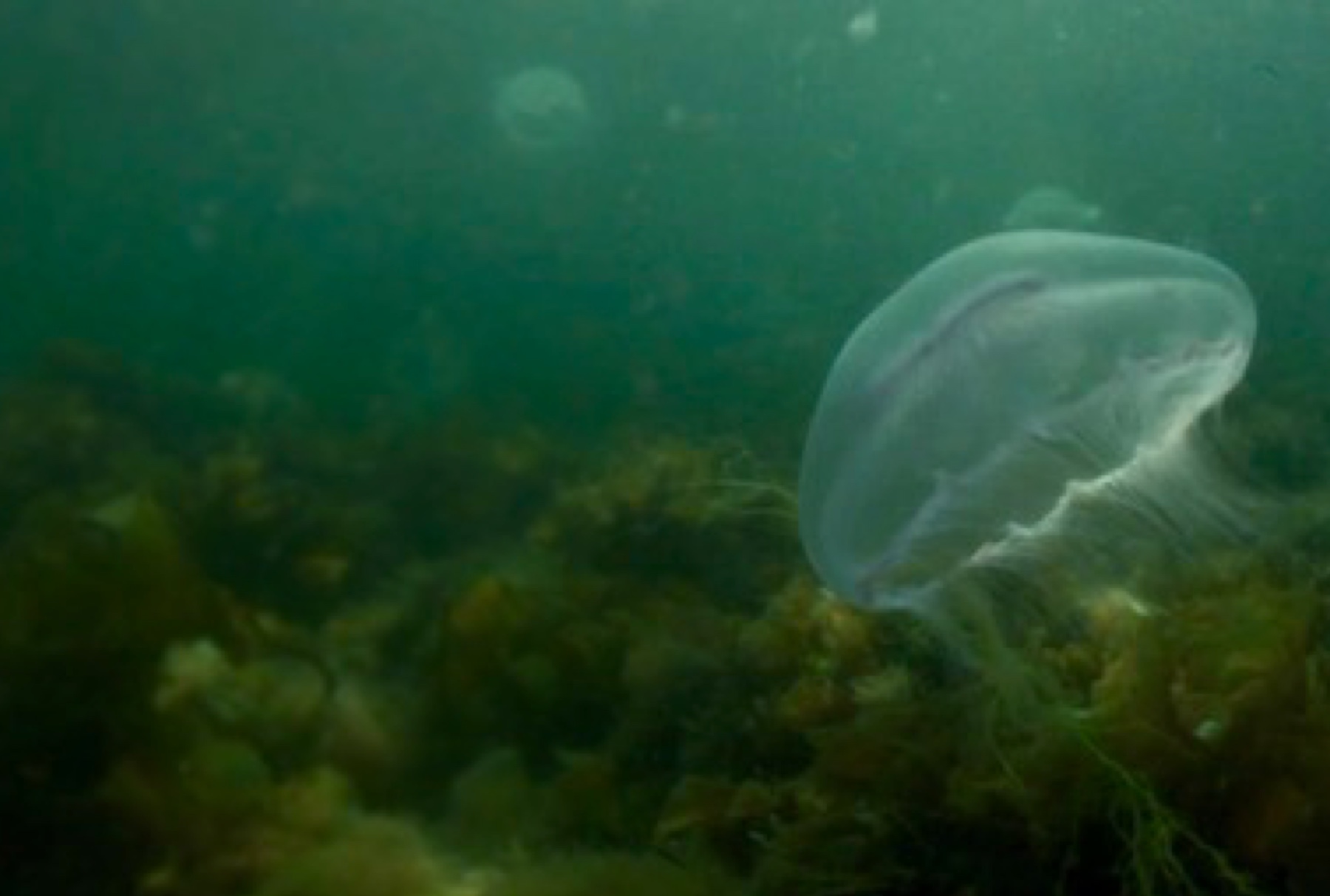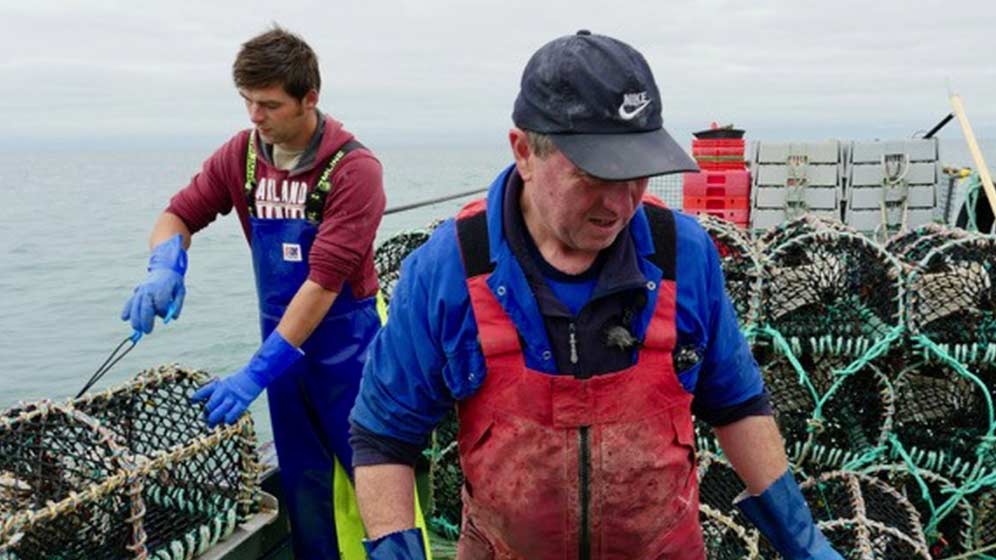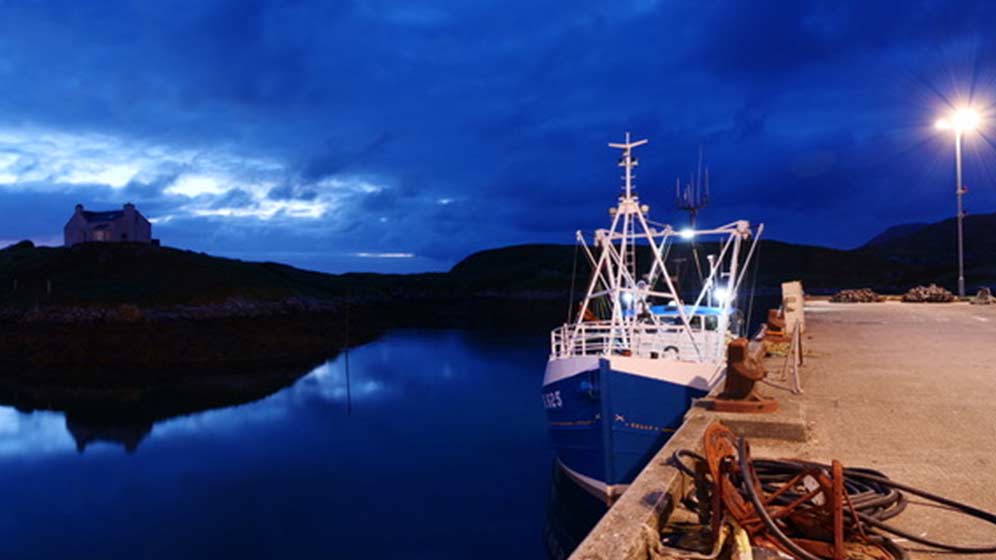Watch
See our research brought to life, with our range of films.
Iorram: A project by Dr Alastair Cole
Iorram (Boat Song)
A 96-minute documentary film-based research project, directed and produced by Dr Alastair Cole.
UK theatrical and broadcast release: Spring 2021.
Film website: http://tonguetiedfilms.co.uk/iorram/
About the film
The first ever feature documentary in Scottish Gaelic, Iorram is an immersive and poetic portrait of life in the Outer Hebrides, as the islands and the language face an uncertain future. This unique cinematic film is entirely composed from rare archive sound, edited from over 30,000 recordings, and contemporary moving images filmed over three years. The ghostly voices, stories and songs from the last century interplay with stunning observational footage of daily life in the islands today, to create a lyrical and playful dialogue between past and present, and between sound and vision, set to an original score composed and performed by award-winning contemporary folk musician Aidan O’Rourke (from Lau).
The film is being produced by Bofa Productions and Tongue Tied Films, and received production funding from Screen Scotland and BBC Alba. The research project is being undertaken in collaboration with the University of Edinburgh; and the project’s development has received ESRC IAA funding as well as a Newcastle University Pioneer Award and SACS School Strategic Research Award.
The theatrical version of the film will be launched in cinemas in the UK in spring 2021, followed by a digital and community cinema tour. It will be released internationally in summer 2021. An 89-minute version of the film will be broadcast for the first time on BBC Alba on 1st January 2021.
About the research project
The project aims to creatively and poetically explore the contemporary significance of the seafaring and fishing communities to the Outer Hebrides’ cultural, and particularly linguistic, heritage and futures. It aims to explore the capacity of creative documentary filmmaking to create conceptual and emotive links between sound archive, oral histories, and contemporary moving images. The project also aims to investigate the capacity of folk music influenced film scores to deepen the connections between the historic and contemporary elements of the film.
The filmic output aims to contribute to the public debate around the future of Scottish Marine policy in post-Brexit UK, including highlighting the importance of recognising the Gaelic language connections with inshore fishing communities in the islands. The structure of the project also aims to better understand the possibilities of collaborations between academia, the documentary film industry and broadcasters to foster publicly engaged creative practice research. As well as the film output, there will also be a selection of written publications reflecting on these creative practice aspects of the research project.
From the Tongue Tied Films website:
At the heart of the film is an extraordinary trove of sound archive, recorded by pioneering Scottish ethnographers in the mid-20th century, who visited the Outer Hebrides to capture the hardship and romance of life lived in precarious balance with the sea, spoken in a language shaped by the waves. These newly restored recordings preserve an oral history of practical lore and mystical legends passed down through generations of Gaelic speakers, but now on the brink of fading away forever.
Director Alastair Cole places these voices from the past alongside stunning visual imagery of the daily working rhythm of the islands today, on land and on water, shot over three years. The tough realities of fishing and gutting in all weathers and seasons co-exist alongside superstitions and visions of mermaids, faerie folk and mysterious vanishing islands.
ReMIND: A project by Dr Francesca Lanz
ReMIND is a two-year research project hosted within Media, Culture, Heritage at Newcastle University. The project is a study on the adaptive reuse of former asylums into museums, chiefly focusing on ‘mind museums’.
A mind museum, as defined by the project, is a museum hosted in the former premise of a psychiatric hospital, which has the primary mission to foster critical reflections on the histories and contemporary problems of managing mental health in society.
About the research project
In particular, the research delves into the complex relationship existing in these specific museums between the cultural and curatorial project of the museum, the architectural intervention of adaptive reuse onto its hosting building, and the exhibition design. It investigates if and how these affect one other – do they work together and determine visitor experience, and with which effects?
To do so, the study conjoins complementary disciplinary approaches from architecture, museum and exhibition design and museum studies. ReMIND is the first study on mind museums; its aim is to develop all-round insights into this museum type, their work and potentials. This may be relevant for informing reuse policies for former asylums, as well as in the study of other museums alike.
The project has been paused since July 2020 due to the COVID-19 outbreak; it is going to restart by the end of the year and will end in December 2021. To read more about the project see: https://research.ncl.ac.uk/remind/
About the film
As part of the project, Francesca Lanz and Chiara Bombardieri curated a video by Alec Boyd, in collaboration with the Museo di Storia della Psichiatria di Reggio Emilia and the Biblioteca Scientifica Carlo Livi (Italy).
Entitled Refugee, it is based on a selection of historical records conserved at the archive of the former San Lazzaro psychiatric hospital in Reggio Emilia (Italy). It contributed to the World Refugee Day 2020 events organised by the Centre for Heritage Research in collaboration with the International Coalition of Sites of Conscience , focusing on war, displacement, human rights and mental health.
It explores the lives of a group of psychiatric patients who had been displaced at the San Lazzaro asylum from other institutes located on the eastern Italian war border during the First World War. “Refugee” talks about fragility and care, as well as social segregation, control and custody, inviting us to reflect on contemporary mental health problems in relation to migration and the struggles for a better life:
Who is Europe?: A project by Dr Ian McDonald
Who is Europe? was commissioned and filmed as part of the European Union-funded CoHERE project, led by researchers at Newcastle. CoHERE was one of the largest ever research projects into the meanings and politics of European heritages and identities. For a range of free online resources about this, you can access the CoHERE Critical Archive.
Film Trailer:
For further information and the longer version of the film, you can visit:
https://www.whoiseuropefilm.com/a-film-in-six-acts/
If you are interested in learning more about the film-making process, you can read the following open access chapter written by Ian McDonald, Christopher Whitehead, Gönül Bozoğlu, Susannah Eckersley and Mads Daugbjerg.
Illuminations: the creation of Plain Changes
Plain Changes creatively responds to the bell peel of St. Andrews in Heckington, a church in Lincolnshire, UK. Eight handbells are mechanically stimulated by electronic solenoids controlled using custom-made computer software. The sequences played are based on the patterns used in traditional change ringing, the piece plays every combination possible with 8 bells and then repeats. In total there are 40,320 possibilities. The software also adjusts the tempo so that changes ring at speeds which are physically impossible with real church bells. Plain Changes allowed us to explore the aesthetic character of change ringing through contemporary technology.
About the research project
From 2016 to 2017, the research team worked with a community group seeking to preserve and promote the 14th-century medieval church of St Andrew in Heckington, Lincolnshire. This involved exploring and demonstrating the cultural and social potential of the church through the creation of several digital artworks in response to the building, its history and its place in local life.
For more information about Illuminations, you can read the project's research profile.
You Can't Move History
Heritage is also an effect of power imbalances and social conflicts which evolve over time. Dominant ideas about what counts as legitimate heritage change over time and they ultimately represent the views, either of professionals or of politicians and activists who have successfully lobbied for change.
While young people have often been asked to fill in surveys and questionnaires about what kinds of heritage they value, there have been very few examples where they have been able both to conceptualise heritage in their own terms and win influence for this conceptualisation. The Long Live Southbank campaign is an exception to this rule.
About the research project
This research project involved a collaboration between academics from four different UK universities, the film-making collective BrazenBunch and the campaign group Long Live Southbank. The core of the project was the creation of a 22-minute film documenting a campaign which, in September 2014, successfully secured the preservation of a 40-year-old skate spot on London’s south bank.
Coming in shortly after the campaign’s success, the academics involved in this project were interested in better understanding the unique heritage claims which had been made by those involved. There was also an action-research motivation to the work, with the film being divided into three sections exploring how skateboarders understood their connection to the space, how they sought to communicate that to others and the extent to which they were heard. The final result won first prize in the 'Best Research Film' category of the Arts and Humanities Research Council’s 2016 Research in Film awards.
Life After Life by Gönül Bozoğlu
Life After Life is the story of the historic Rum (Greek) population of Istanbul, told through personal stories and community life. The latent force of historic state persecution – ruinous taxes and forced labour for religious minorities, the 1955 Pogrom, and the 1964 expulsions of Greeks – shape the worlds of memory in which community members live. The film is about what it means to live with the past in the present, and how people make their peace and new hope from a community memory of loss, displacement and difficulty.
Directors: Gönül Bozoğlu & Cem Hakverdi
Camera: Cem Hakverdi
Editing: Cem Hakverdi & Gönül Bozoğlu
Executive Producer: Ian McDonald
Music: Christopher Whitehead, Café Aman İstanbul
About the research project
This film was funded through the Leverhulme Early Career Research Fellowship held by Gönül Bozoğlu at Newcastle University from 2018 to 2021 on the memory cultures of the Greeks of Istanbul. The research received a Pioneer Award from Newcastle University’s Institute for Creative Practice, providing additional funding for the film.

.png)
.png)
.png)
.png)
.png)
.png)
.png)
.png)
.png)

